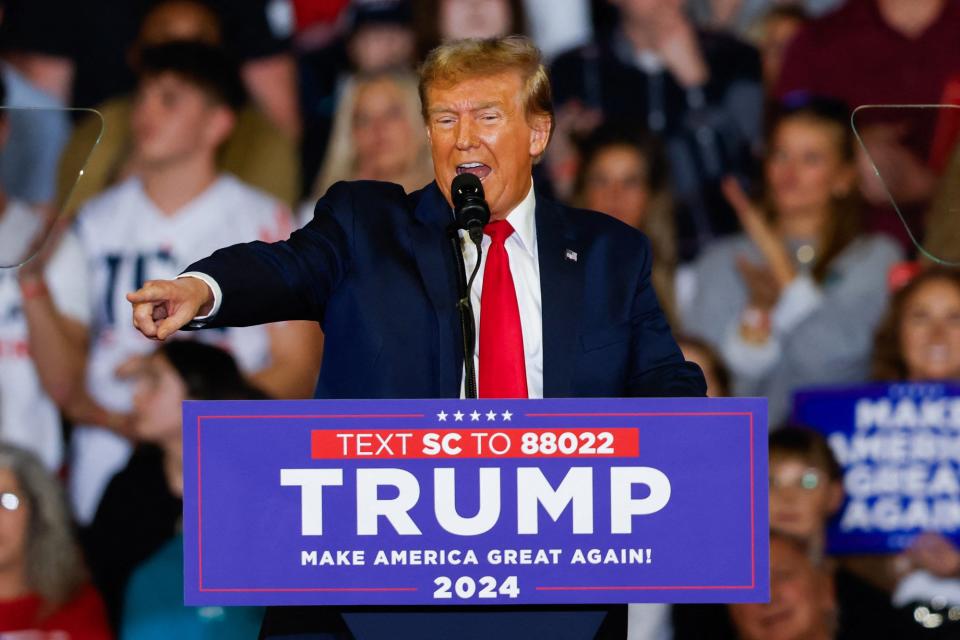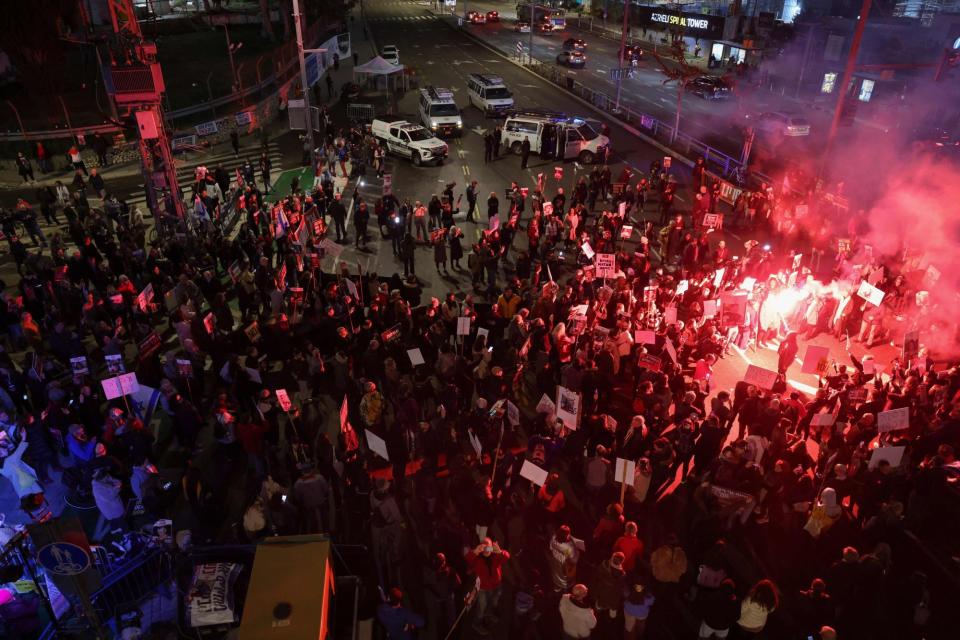As Europe reels from Donald Trump threat, Ukraine and Middle East, Wang Yi heads to Munich meeting
A year ago, Wang Yi, China's top diplomat, stopped off in Munich in what was billed as a "European charm offensive", to be rounded off with a trip to Moscow.
At an annual security conference in the Bavarian city, Wang launched a thinly veiled rebuke of the United States for its stance on the Ukraine war.
"Some forces might not want to see peace talks materialise," the Chinese foreign minister said, adding that "they don't care about the life and death of Ukrainians, the harms on Europe ... they might have strategic goals larger than Ukraine itself".
Do you have questions about the biggest topics and trends from around the world? Get the answers with SCMP Knowledge, our new platform of curated content with explainers, FAQs, analyses and infographics brought to you by our award-winning team.
On Friday, as Wang touches down in Munich to speak at the same forum, observers anticipate Washington will be the elephant in the room again.
Wang is widely expected to meet US Secretary of State Antony Blinken on the sidelines of the meeting.
During a speech on Saturday lunchtime and at bilateral meetings with Western officials, Wang is expected to pitch Beijing as a responsible global player, as large parts of Europe recoil at the potential return of ex-US president Donald Trump to the White House.
Immediately after his speech, a panel with US Secretary of State Antony Blinken, Indian Foreign Minister Subrahmanyam Jaishankar and German Foreign Minister Annalena Baerbock will take the stage.
But it was not confirmed whether Wang would meet his counterparts.
Trump more than once this week suggested the US would not defend a Nato ally if it was attacked by Russia, defying a stipulation of the transatlantic security group's charter.
The former American president's assertion dominated political discourse in Europe this week and is likely to loom over the diplomatic proceedings in Munich this weekend.
"The key question for all these upcoming meetings is not if but how actively Wang will push Beijing's mantra about US unreliability in response to European alarm about Trump," read a note from the Mercator Institute for China Studies (Merics), a German think tank.
The Chinese foreign ministry said Wang's speech on Saturday would focus on "China's propositions on building a community with a shared future for mankind and advocating an equal and orderly multipolar world".
Wang is, however, slated to meet a string of foreign ministers including Britain's David Cameron and the EU's chief diplomat, Josep Borrell, before heading to France and Spain for meetings with his counterparts there.
Analysts believe the Chinese envoy will try to find openings for Beijing's interests amid European panic over a possible second Trump presidency.

Former US president Donald Trump speaks at a campaign rally in Conway, South Carolina, on Feb. 10. His potential return to the White House has raised concern among some European leaders. Photo: AFP/Getty Images/TNS alt=Former US president Donald Trump speaks at a campaign rally in Conway, South Carolina, on Feb. 10. His potential return to the White House has raised concern among some European leaders. Photo: AFP/Getty Images/TNS>
"The Munich Security Conference is often a space for China to not only have bilateral meetings with European and American leaders but also to provide calibrated messages on its global ambitions," said Abigael Vasselier of Merics.
"This year's meeting will definitely be the place to watch to learn about China's current views on European security and the future of the transatlantic partnership."
Trump aside, Wang will land in an increasingly war-weary Europe, with the Russian invasion of Ukraine ticking towards its second anniversary.
In contrast to a year earlier, cracks have appeared in EU unity on the conflict, largely down to the stance of China's closest friend in Europe, Hungary.
In Brussels on Wednesday, Budapest was again the only one of 27 member states to oppose a new package of sanctions designed to hobble Russia's war machine.
Reports indicated Hungary specifically objected to the listing of three mainland Chinese and one Hong Kong entity on an EU blacklist for helping Russian firms evade EU sanctions and access dual-use goods made in Europe.
Last year, there was still some hope in Europe that Beijing could help broker a ceasefire in Ukraine. But these days EU expectations are more measured.
Compared to last year, there is little chatter of a meeting between Ukrainian and Chinese officials. The Munich Security Index, a survey released ahead of the summit, showed a majority of Ukrainians saw China as a "threat" rather than an "ally".
"Nobody expects Beijing to intervene positively, but with Trump on the horizon, we will more and more see leaders managing their personal relations with China so that they don't start actively helping Russia," said a senior EU diplomat, who spoke on condition of anonymity.
Meanwhile, on the other dominant geopolitical issue of the day, the Middle East, the bloc is profoundly divided.
Ireland and Spain this week demanded the EU review its trade deal with Israel, saying its bombardment of Gaza did not satisfy the agreement's human rights tenets.
As other members stand by Israel's right to defend itself, tensions within the bloc have mounted.
And since the Hamas attacks on October 7 sparked the current crisis, Beijing has been a staunch supporter of Palestine, repeatedly calling for an immediate ceasefire.

Relatives and supporters of Israeli hostages held in Gaza since the Oct. 7 attacks by Palestinian Hamas militants light flares and block a road in Tel Aviv on Thursday during a demonstration calling for their release. Photo: AFP alt=Relatives and supporters of Israeli hostages held in Gaza since the Oct. 7 attacks by Palestinian Hamas militants light flares and block a road in Tel Aviv on Thursday during a demonstration calling for their release. Photo: AFP>
It has positioned itself along with much of the Global South in United Nations votes pertaining to the conflict, and in Munich can be expected to echo Palestine's point of view.
Insiders anticipate the Middle East will also be a core focus of EU dialogue in Munich, but with little margin for Beijing to reap benefits over these geopolitical issues.
"In foreign affairs it may look like Europe has lots of divisions, but they are not big enough for China to exploit," said Miguel Otero of the Elcano Royal Institute, a Madrid-based think tank.
Instead, it is thought that Wang will funnel his efforts into bolstering ties with major countries still eager to engage China, even as the broader EU-China relationship stumbles amid trade grievances and Beijing's close ties with Moscow.
As the EU debates whether to take action over cheap Chinese solar panels, the Centre for China and Globalisation a Beijing think tank, is organising a side event in Munich urging the EU, US and China to embrace "trilateral climate cooperation".
"The Chinese hope is that outreach towards major member countries - Germany, France, Italy, Spain - will keep EU policy on a friendly track," said Pascal Abb of the Peace Research Institute in Frankfurt.
"They have enjoyed recent Chinese overtures like visa-free business travel and are also natural proponents of 'strategic autonomy', which China has encouraged in the interest of preventing US-EU alignment."
In Spain, for example, a debate is under way as to whether and how to invite Chinese investment into its electric-vehicle sector.
"China sees Spain as a reasonable actor in Europe at a time of a change in attitudes towards China in the EU, particularly in the east and north," said Otero. "In Spain, China is still seen as a partner that we have to work with."
Observers view France, meanwhile, as playing a two-sided game. It too is open to Chinese investment in hi-tech industries, including electric vehicles and batteries, even as it teeters on the cusp of a trade spat with Beijing.
It was Paris that urged the European Commission to investigate subsidies in the Chinese electric-vehicle sector, spurring a retaliatory probe into subsidies in its brandy sector.
The flare-up comes while Paris prepares for a state visit from Chinese President Xi Jinping later this year, according to various sources, as the governments toast 60 years of bilateral ties.
"It would be very easy to antagonise China, but largely counterproductive," said Marc Julienne of the French Institute of International Relations in Paris.
"It is understandable that France wants to retain good ties with China, the world's second-most powerful economy," he added. "But it is also legitimate to try and protect French and European interests."
This article originally appeared in the South China Morning Post (SCMP), the most authoritative voice reporting on China and Asia for more than a century. For more SCMP stories, please explore the SCMP app or visit the SCMP's Facebook and Twitter pages. Copyright © 2024 South China Morning Post Publishers Ltd. All rights reserved.
Copyright (c) 2024. South China Morning Post Publishers Ltd. All rights reserved.

 Yahoo Finance
Yahoo Finance 